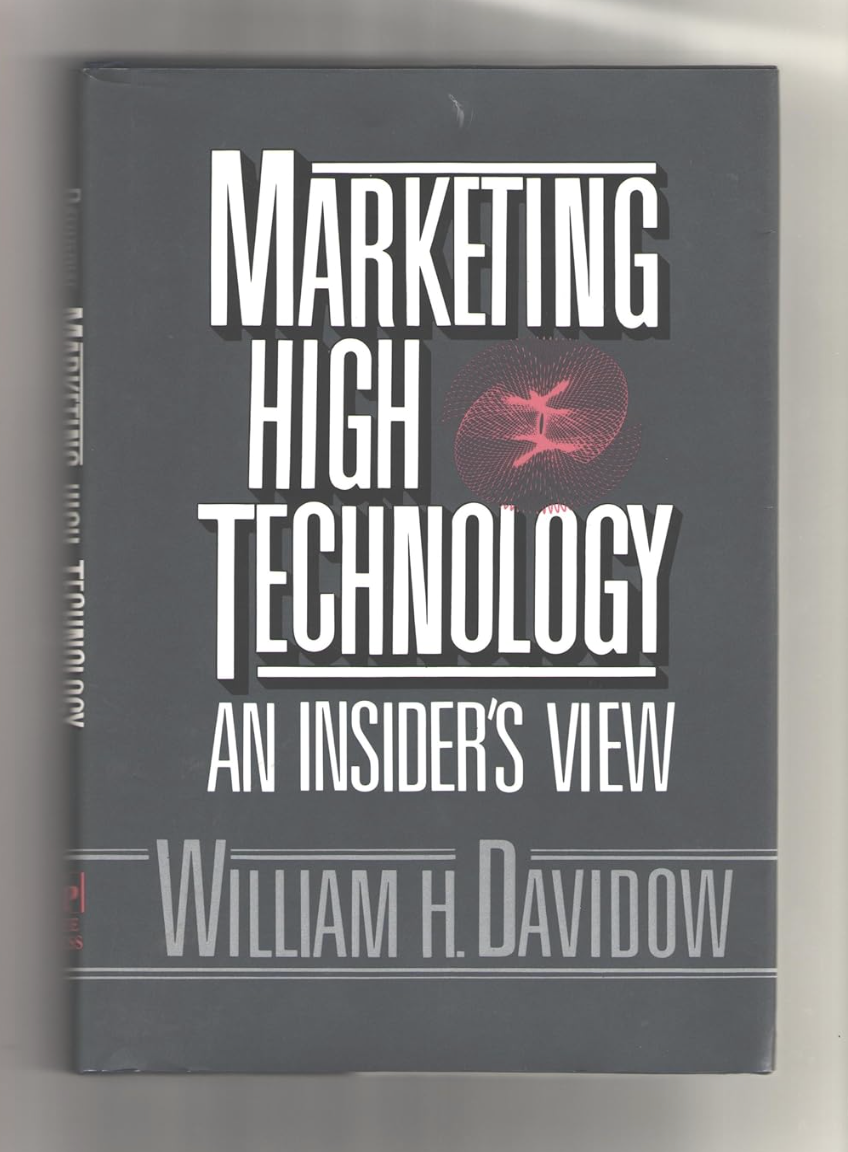Marketing has become too specialized

I was speaking with a founder the other day about who they should target as their first marketing hire. The “first marketer” is a tough role to fill, in my experience, because most marketers are too specialized. You may know a great paid marketer or content marketer, but it doesn’t make sense to hire any of them until you’re sure that those tactics are worth investing in. Brand marketing is valuable down the road, but not at the start. You might think that hiring a product marketer would be the answer, but most of them are just glorified sales enablement managers or user researchers.
What you really need is someone who has a broad-based understanding of what marketing is all about, and is willing to own the growth of the business. I’d like to think those sorts of marketers used to exist, but I’m not sure where to find them anymore.
My favorite description of marketing comes from the book Marketing High Technology by William Davidow. Davidow was a general partner at Mohr Davidow Ventures and, prior to that, a marketing manager and then SVP of sales & marketing at Intel. The book, in which Davidow lays out the approach he took to make Intel’s 8080 and 8086 microprocessors so successful, is one of those incredibly useful tomes that seems lost to time. I’ve never heard anybody mention it, but it is, pound for pound, the most useful book about building, launching and distributing products that I’ve ever come across.
Davidow begins by making a distinction between “devices” (in his case, microprocessors) and products. A device is a technical invention. A product, on the other hand, is the “totality of what the customer buys.”
To land the point, Davidow makes the following analogy: when you go grocery shopping, you’re buying food (the device). But you decide where to shop based on the food quality as well as the retail environment, the food display, the cleanliness of the store, and the ease of parking. It is those features combined which define the product.
And while a great deal of effort goes into developing new devices, “far too little energy is expended on inventing complete products.” The latter is the realm of marketing.
Engineers invent devices. Marketers invent products.
That’s not where the job of marketing ends, however. A product is nothing without a market. And market segmentation is not nearly as easy as it sounds. Customer requirements are wide-ranging and often mind-numbingly specific. And it is the job of marketing to identify the dominant characteristics in a customer group, define the product relative to those requirements, and build a defensible market position. Defensibility may come from technical features (the device), but more often, defensibility will come from other aspects of the product - better distribution, superior onboarding, excellent post-sales support, stronger brand awareness among the target customer segment, strategic partnerships, and so on.
The job of marketing still isn’t done, though, because market segments aren’t static. Customer needs, wants, desires are all constantly changing, as is the technical landscape. Each shift in customer preference creates an opportunity for exploitation by the competition. It is the job of marketing to track those shifting tides and maintain a defensible market position despite all of that.
That is what marketing means to me. Paid marketing, content marketing, brand marketing…those are all levers that an excellent marketer can pull to maintain the defensibility of a product and drive growth. But they are tools to be used as part of executing on a larger strategy. Marketers seem to have forgotten that they need to own defining the larger strategy as well.
Diagnosing why marketers have forgotten their role is a task for another day. I think it has something to do with the evolution of the role of the product manager (see Ben Horowitz’s fantastic post about what it means to be a good PM). And the problematic, but nonetheless widespread, belief that the PM is the “CEO of the product.” But, regardless, we’re now all suffering the consequences of a marketing function that has atrophied.
To paraphrase Davidow, great devices may be invented in the laboratory, but great products are invented in the marketing department. Or they used to be, at least. And perhaps one day they will be again.